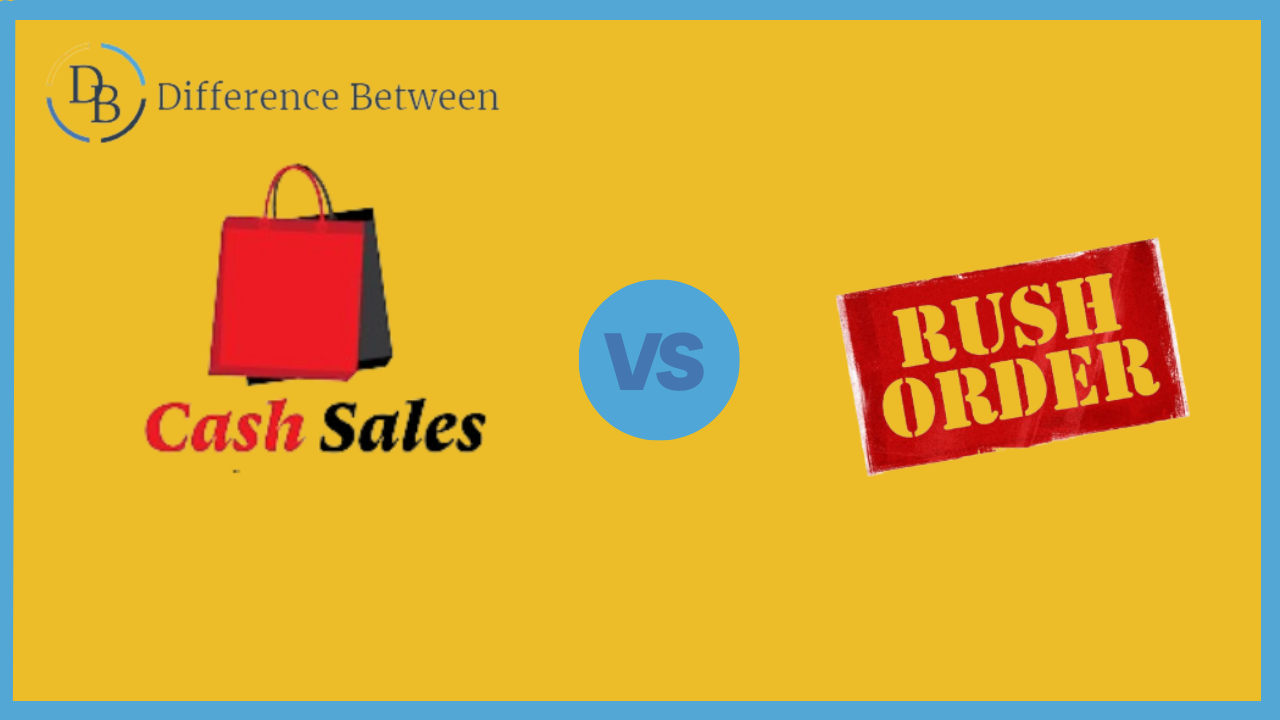In the dynamic landscape of commerce, various transactional terms abound, each carrying its distinct implications. Among these, “Cash Sales” and “Rush Orders” stand out, representing different facets of the business process. This article explores the characteristics of Cash Sales and Rush Orders, shedding light on their definitions, applications, and the disparities that set them apart.
What is Cash Sales?
Definition: Cash Sales refer to transactions where the buyer makes an immediate payment for goods or services at the point of sale. In this scenario, cash is exchanged, leading to an instantaneous completion of the transaction.
Application: Cash Sales are prevalent in retail settings, where customers pay for items in cash, debit, or credit card at the time of purchase. This method is known for its efficiency and immediacy, streamlining the exchange process.

What is Rush Order?
Definition: A Rush Order, on the other hand, pertains to a special request made by a customer for an expedited delivery of goods or services. It implies an accelerated processing and shipping time compared to standard orders.
Application: Businesses often encounter Rush Orders in situations where customers require a product or service urgently. This could be due to unforeseen circumstances, time-sensitive projects, or other reasons that necessitate a faster turnaround.
Comparison Table: Cash Sales vs. Rush Order
| Criteria | Cash Sales | Rush Order |
|---|---|---|
| Payment Timing | Immediate, at the point of sale. | Typically involves an upfront payment but emphasizes expedited delivery. |
| Transaction Type | Regular transaction, completed on the spot. | Special request for accelerated processing and delivery. |
| Customer Interaction | Focuses on in-person sales and quick transactions. | Arises from customer urgency or time-sensitive needs, often initiated remotely. |
| Common Industries | Retail, small businesses with quick transactions. | Various industries, including manufacturing, services, or any with time-sensitive demands. |
| Processing Time | Instantaneous, quick processing. | Accelerated processing to meet urgent timelines. |
Exploring the Dynamics:
Cash Sales in Retail: Cash Sales are the lifeblood of many retail businesses. The immediacy of the transaction enhances customer satisfaction and enables businesses to manage their cash flow more efficiently.
Rush Orders in a Time-Critical World:
Rush Orders respond to the demands of a fast-paced environment. Whether it’s a client with a last-minute project or a customer needing a product urgently, Rush Orders cater to the need for speed in today’s business landscape.
Conclusion:
In the realm of commerce, understanding the distinctions between Cash Sales and Rush Orders is vital for businesses aiming to optimize their processes. While Cash Sales ensure swift transactions and immediate revenue, Rush Orders cater to the demands of a time-critical world, where speed can be a competitive advantage. As businesses navigate the complexities of customer needs and operational efficiency, a nuanced grasp of these concepts becomes an invaluable asset in driving success.

